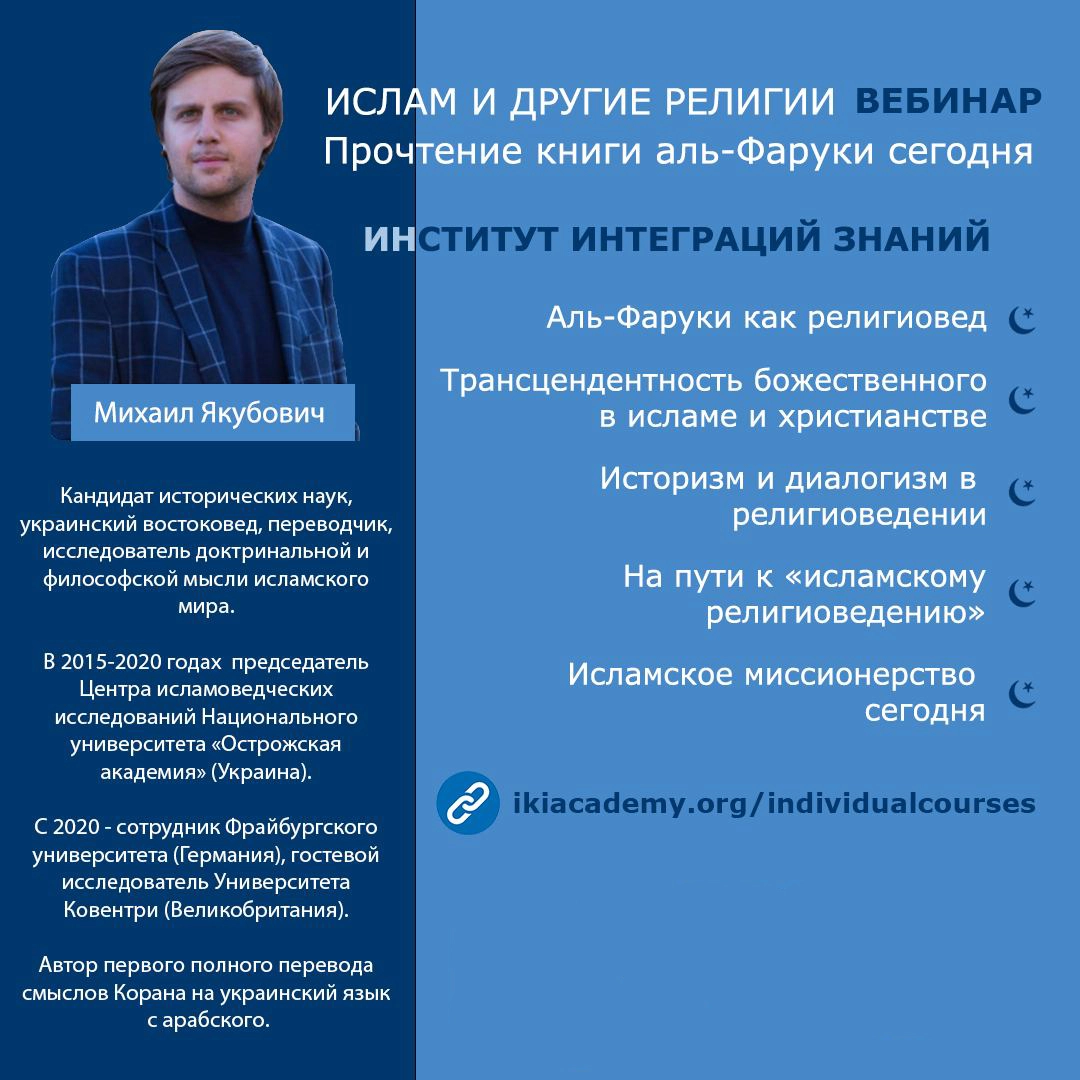As part of the IIIT Lecture Series for CIS Countries project, a webinar entitled “Islam and Other Religions: Reading Al-Faruqi’s Book Today” was held on February 23, conducted by Dr Mykhaylo Yakubovych.
The webinar explored the key ideas of the American-Palestinian thinker Ismail Raji al-Faruqi, focusing on his understanding of Islam, its relationship with other religions, and interfaith dialogue. The speaker provided a detailed overview of al-Faruqi’s biography, his academic journey, and contributions to religious studies. One of the central aspects of the discussion was al-Faruqi’s book Islam and Other Faiths, in which the author emphasized the spiritual rather than the political dimensions of Islam. The book, published posthumously in 1998 under the editorship of Atallah Sidqi, compiles al-Faruqi’s works, showcasing his approach to interfaith dialogue. Special emphasis was placed on his concept of religious experience in Islam, which, according to him, lies in the awareness of life’s meaning and submission to divine guidance.
The webinar also explored interfaith interactions within the Islamic tradition, highlighting that the Islamic world historically encompassed not only Muslims but also followers of other religions, with whom peace agreements could be established. A significant part of the discussion focused on the study of the history of religions. Al-Faruqi did not view this field as a means of apologetics, but rather as a tool for analyzing humanity’s shared intellectual and spiritual heritage. In this context, the speaker also addressed Islamic missionary work, emphasizing that the Qur’an speaks not only to Muslims but also to followers of other religious traditions, shaping Islam’s distinctive approach to interfaith understanding.
The topic of interfaith dialogue was of particular interest as Al-Faruqi advocated for a “horizontal” dialogue, which is not limited to theological discussions but also encompasses broader social and cultural interactions. In the modern world, the isolation of religious communities can lead to their marginalization, therefore, dialogue becomes a necessary tool for preserving religious and cultural identity. The speaker also discussed al-Faruqi’s attempts to revive medieval Islamic religious studies. In the Middle Ages, Muslim scholars showed a deep interest in other religious traditions, considering their study an essential part of intellectual inquiry. Al-Faruqi sought to reintroduce this approach into contemporary Islamic thought.
In conclusion, the Dr Yakubovych emphasized the relevance of Al-Faruqi’s contributions to Islamic philosophy and comparative religions. Despite significant progress in interfaith dialogue and comparative religious analysis, many of the questions raised by the Al-Faruqi remain relevant and require further research.









